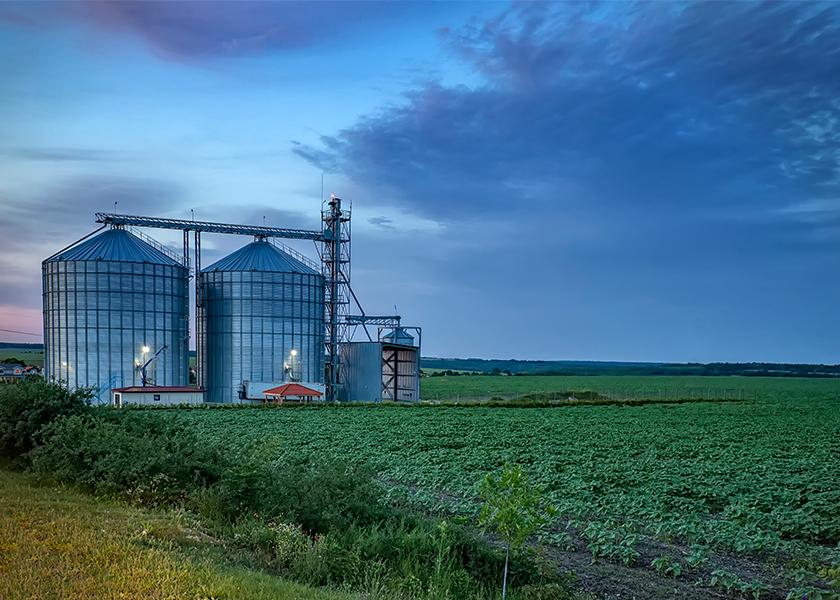Evening Report | October 11, 2021

Click here for weekly Commitments of Traders charts.
Check our advice monitor on ProFarmer.com for updates to our marketing plan.
Cotton producers: Increase 2022-crop sales… December 2022 cotton futures have pushed above 90.00 cents this morning, despite corrective declines in 2021-crop contracts. We feel cotton prices at current levels will destroy demand, and as a result, we’ll continue to sell the price rally. We advise cotton hedgers and cash-only marketers to sell another 10% of expected 2022-crop production for harvest delivery next year to get to 30% forward-sold.
SovEcon lowers corn crop forecast for Ukraine, trims Russian wheat production forecast… Ag markets research firm SovEcon lowered its corn crop forecast for Ukraine by 1.2 MMT to 38.4 MMT. The firm cited lower starting yields in key northern producing regions that struggled with late-summer drought. “Also, there is a growing risk that part of the new crop could be unharvested due to the record-slow campaign,” SovEcon says. Harvest was just 14% as of Oct. 7, half the usual rate for this time of year. Last month, USDA estimated Ukraine’s wheat crop at 39 MMT.
SovEcon also shaved another 100,000 MT off its Russian wheat crop estimate that now stands at 75.5 MMT. The firm cited smaller crops in the Center and Volga Valley regions resulting from an unusually large amount of unharvested wheat. In Orenburg, the largest wheat producing area of the Volga Valley, producers will likely abandon around 25%, or roughly 1.05 million acres, of planted area given low yield prospects, according to SovEcon. This is expected to be partially offset by bigger crops in Russia’s south region and Siberia. USDA projected Russia’s wheat crop at 72.5 MMT in September; that figure could be updated in Tuesday’s report.
Tai, Liu hold video discussions on trade situation… U.S. Trade Representative (USTR) Katherine Tai and Chinese Vice Premier Liu He held discussions via video Friday evening in which the officials “acknowledged the importance of the bilateral trade relationship and the impact that it has not only on the United States and China but also the global economy.” The two discussed the Phase 1 agreement reached between the U.S. and China, “and agreed that the two sides would consult on certain outstanding issues.” A readout of the discussion from the USTR office said Tai “emphasized U.S. concerns relating to China’s state-led, non-market policies and practices that harm American workers, farmers and businesses.”
From the Chinese side, the Xinhua News Agency said the talks were “pragmatic, candid and constructive” with three issues covered, including that economic relations between the two were “of great importance to the two countries and the world at large” and that they should be strengthened. The second issue raised, Xinhua said, was that they “exchanged views” on the Phase 1 agreement and thirdly “expressed their core concerns and agreed to resolve each other's legitimate concerns through consultation.” Further, Liu pressed the U.S. on lifting additional tariffs and sanctions and outlined China’s position on “economic development model and industrial policy.”
Ahead of the call, the USTR office briefed reporters, with a senior official remarking, “We recognize that Beijing is increasingly explicit that it is doubling down on its authoritarian state-centric approach and is resistant to addressing our structural concerns. Therefore, our primary focus will continue to be on building resilience and competitiveness, diversifying markets, and limiting the impact of Beijing's harmful practices."
USTR published its request for comments on the “possible” reinstatement of certain exclusions for Section 301 tariffs Friday, with the comment period running from Oct. 12 through Dec. 1. But clearly China wants more than exclusions but rather the tariffs removed.
It does not appear any conclusions were reached during the call, the first between Tai and Liu after an initial informal introductory call earlier this year. But there were no expectations there would be any major breakthroughs in the call.
Is an energy crisis ahead?... Consider the following.
- There’s no U.S. or world energy strategy from current oil system to clean energy.
- Natural gas is needed as a backstop to renewables.
- Germany has halted nuclear fuel—a source that had been 30% of German’s energy supply
- Russia is flexing its energy muscle
- Biden energy policy disconnect:
- No to Keystone XL Pipeline; Yes to Russia/Germany Nord Stream 2
- He has put limits on fracking
- Biden says no to new drilling/exploration on U.S. federal land
- White House asks OPEC for more production
And a Black Swan event is always a possibility. Consider, for example, what might happen if Iran or some other country attacked natural gas production.
Global supply-chain delays are so severe that some of the biggest U.S. retailers are chartering their own cargo ships to import goods... Port delays, Covid-19 outbreaks and worker shortages have snarled the flow of products between Asia and North America, threatening supplies of everything from holiday decorations and toys to appliances and furniture. Walmart, Home Depot, Costco and Target are among the companies that are paying for their own chartered ships as part of wider plans to mitigate the disruptions, a costly and unattainable option for most companies. Some of the chains are passing along these added costs by raising prices for shoppers, the Wall Street Journal reports.
Chart Trend: Sideways action likely for cattle futures near-term… Find updates to our short-term, intermediate- and long-term trends for commodity and key outside markets here.






